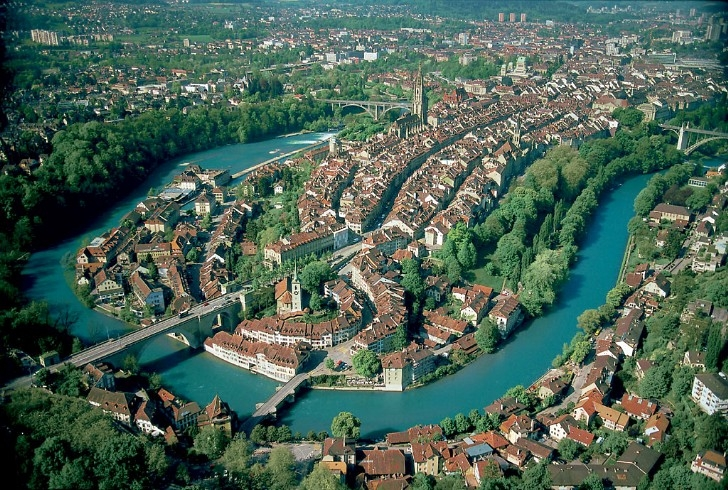
Have you been concerned about safety recently? Protests and upheavals seemed to fill the news almost every day of 2011, from the Arab Spring to the Occupy protests. The economies of the US and the Eurozone continued to be in trouble with debt crises, debt-ceiling crises and no fall in the number of financial scandals. Civil war broke out in some places – most notably in Libya, resulting in the death of Muammar Gaddafi.
Nobody could blame you for feeling uneasy. In fact, the good folks over at Mercer Human Resource Consulting felt the same way. Which is why, in their 2011 Quality of Life Reports, they decided on a special ranking for the safest cities in the world, separate from their usual quality-of-life lists.
What makes a city safe? Let’s take a look at the top four cities in the world. In the #1 spot is Luxembourg in Luxembourg. Tied for #2 are Bern in Switzerland, Helsinki in Finland and Zurich in Switzerland again. As you might expect, all these cities have thriving economies, high education levels and low unemployment. (What you might not have expected is that all, except for Helsinki, count German & French as major languages!)
Luxembourg’s economy, always strong, had the second-highest nominal per-capita GDP in the world in 2010 (according to the International Monetary Fund). Until recently, it was a tax haven and many global businesses chose to establish regional headquarters there. Even today, it houses companies such as Skype and Amazon.
Bern, Helsinki and Zurich don’t do too badly, either. Switzerland, in general, has high levels of education. It hosts many international institutions of repute, including the famous ETH Zurich and the École Polytechnique in Lausanne. Lots of people immigrate to Switzerland for higher education. Bern has a staggeringly high rate of upper secondary (i.e.: university) education among its adult population: almost 73%.
Most tellingly, all four cities have very low levels of unemployment: below 4%.
The factors that were included in the ratings were: internal stability, crime levels, effectiveness of law enforcement and the country’s international relations. Basically, you’re safe if your country doesn’t go to war (either with another country or with a different part of itself), if you’re unlikely to be mugged on your evening walk and if you’re likely to have the perpetrator caught in the rare event of your actually being mugged.
By the way, if you’re an English-speaker (and if you’re reading this article, you probably are!) you might not want to learn German or French or Luxembourgian (really, it exists). The top five safest English-speaking cities in the survey are: Auckland & Wellington in New Zealand at #9 and Calgary, Toronto & Vancouver in Canada at #17. No, there is not a single US city in the top 50.
If you wanted to move to any of topmost safe cities, you can take comfort in the fact that other quality of life factors rate pretty high here as well. Luxembourg ranks #19 in overall quality of life; Bern ranks #9, Zurich ranks #2 and Helsinki #35. This means that in addition to a stable social environment, you can look forward to great health & public services, availability of education, recreation & consumer goods, personal rights & freedoms and a benign natural environment.
Indeed, there is a very close correlation between the world’s safest cities and the world’s best cities in terms of quality of life.
The exception to this correlation seems to be cities in the United States. Eight US cities (Honolulu, San Francisco, Boston, Chicago, Washington, DC, New York City, Seattle & Pittsburgh) make the top 50 in the quality-of-life list, while not a single one is to be found in the safety top-50. One can only imagine that other factors far outweigh the safety concerns.
So, in short, if you demand only the best standards of safety and general environment for you and your family, you’d better start dusting off those passports (or passport-applications)!
Don’t Forget to Visit our Web Store to view our Personal Safety Products